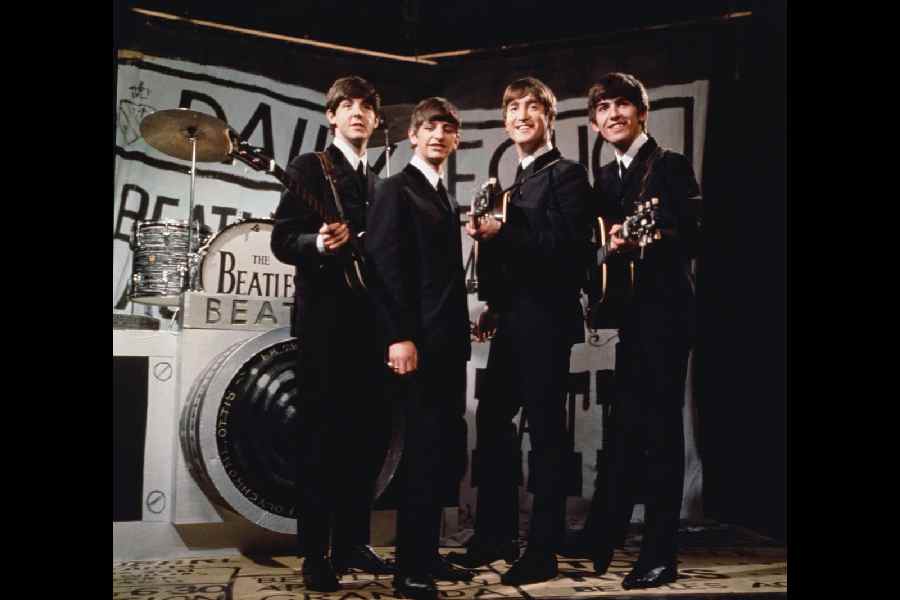Now and Then, dubbed the “last” Beatles song, is a surprise nominee for Grammy Awards 2025.
Set to duke it out for Record of the Year against Beyonce, Charli XCX, Taylor Swift, Sabrina Carpenter and others, it is the first time a song created with help from artificial intelligence has earned Grammy nominations (the Fab Four is also competing in the Best Rock Performance category).
The Beatles disbanded over 50 years ago but last year, Paul McCartney used AI to bring together the record. The lost-love song, recorded as a piano-and-vocal demo by John Lennon in the 1970s, was handed over to the surviving Beatles by Yoko Ono in 1994.
McCartney, the late George Harrison and Ringo Starr worked on an arrangement for the song in 1995 at the same time they were focusing on the songs Free as a Bird and Real Love.
Now and Then didn’t make the cut back then because of its poor audio quality.
Director Peter Jackson used a technology to isolate instruments and voices from mono tracks for his 2021 Get Back documentary series and this interested McCartney. He and Starr used the same technology on the Lennon demo while recording new parts, including a string-orchestra arrangement.
Though finished using a technology called stem separation, Now and Then falls within the guidelines of The Grammy’s rules around artificial intelligence.
It states that “only human creators are eligible to be submitted for consideration for, nominated for, or win a Grammy Award,” but work that contains “elements” of AI material is “eligible in applicable categories”.
Supporters of stem separation say the technology can help clean up older catalogues. Recently, AudioShake, a leading company in this space, entered an agreement with Disney Music Group to help the legendary brand clean up its older catalogue to “unlock new listening and fan engagement experiences” like lyric videos, film/TV licensing opportunities, re-mastering and more.
The Recording Academy has been dealing with the controversy around using AI for the last year or so. Last year, its CEO Harvey Mason Jr held a roundtable to discuss the matter and it was attended by Ghostwriter, the anonymous producer who started the AI music hype with his song Heart on My Sleeve, which deepfaked Drake and The Weeknd.
In August, a song about immigrants with music, vocals and artwork generated using AI, made it to the Top 50 most listened songs in Germany. The parody track Verknallt in einen Talahon by Butterbro is probably the first number to make the cut in a leading music market.
US President-elect Donald Trump is looking at a less constrained AI industry. Elon Musk, who runs the AI company xAI is likely to exert influence in the area provided the two remain on good terms. It’s alsounclear how Trump will handle copyright issues surrounding generative AI, including what information large language models are allowed to train on.
Last month, more than 10,000 creative professionals, including Thom Yorke from Radiohead, actress Julianne Moore and Nobel Prize-winning novelistKazuo Ishiguro, signed an open letter condemning “unlicensed use of creative works” to develop artificial intelligence systems.
The 67th Grammy Awards will be held on February 2 in Los Angeles.










